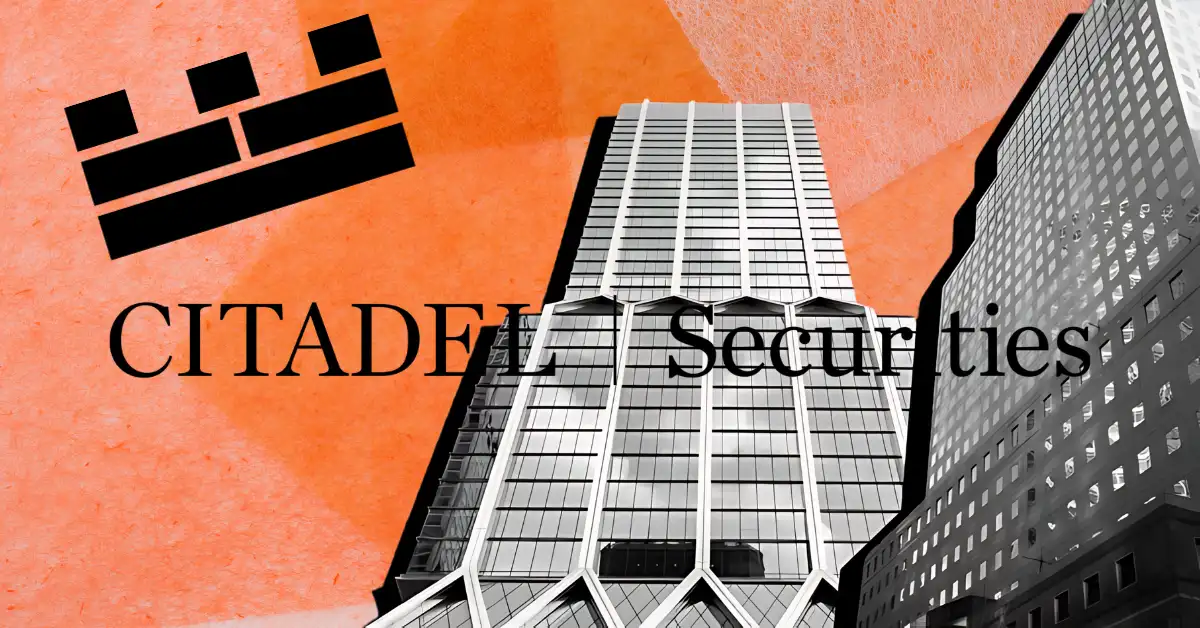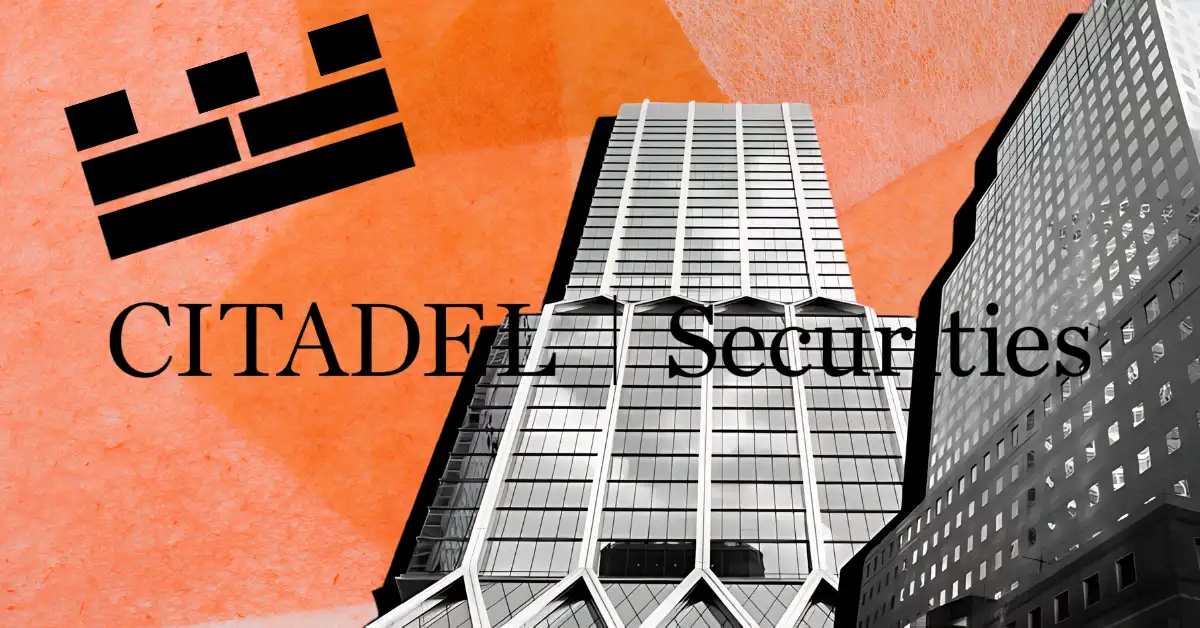The Cautionary Tale of Tokenized Securities: A Critical Examination of Citadel’s Concerns
The Promise and Peril of Tokenization
Tokenization, the process of converting real-world assets into digital tokens on a blockchain, has captured the imagination of the financial world. Proponents argue that it can democratize access to investments, enhance liquidity, and streamline transactions. However, the path to this digital utopia is fraught with challenges. Citadel Securities, a leading market maker, has raised significant concerns about the rapid adoption of tokenized securities, warning of potential risks to market stability, investor protection, and the broader financial ecosystem. This report explores the nuances of Citadel’s arguments, the potential disruptions to traditional markets, and the regulatory tightrope that the U.S. Securities and Exchange Commission (SEC) must navigate.
The Core of Citadel’s Concerns
Citadel’s primary apprehension centers around the potential for tokenization to fragment liquidity within the market. The firm argues that a hasty transition could divert liquidity from traditional equity markets to new, less regulated digital asset exchanges, creating a two-tiered market structure.
Liquidity Fragmentation
The creation of separate liquidity pools for tokenized securities could undermine the efficiency of price discovery and increase volatility in both traditional and tokenized markets. Citadel warns that if liquidity moves to “pools that are inaccessible” to institutions like pensions, endowments, and banks, it could severely limit their ability to participate in the market. This fragmentation could lead to inefficiencies, higher transaction costs, and increased market risk.
Innovation vs. Regulatory Arbitrage
Citadel emphasizes the need for tokenization to deliver genuine innovation and efficiency, rather than serving as a means of regulatory arbitrage. The firm worries that some entities might exploit tokenization to circumvent existing securities laws, creating an uneven playing field and undermining investor protection. This could lead to a race to the bottom, where regulatory standards are weakened to attract market participants, ultimately harming investors and market integrity.
The Need for Formal Rule-Making
Citadel advocates for a formal rule-making process to guide the development and regulation of tokenized securities. This would involve a thorough assessment of the potential risks and benefits, as well as the establishment of clear and consistent standards for all market participants. A carefully considered regulatory framework is essential to ensure that tokenization benefits all stakeholders and promotes the integrity of the financial markets.
Potential Disruptions to Traditional Markets
Citadel’s concerns extend beyond liquidity fragmentation. The firm anticipates potential disruptions to established market structures and processes, particularly in areas such as initial public offerings (IPOs) and institutional participation.
Impact on IPOs
Citadel warns that tokenized stocks could negatively impact traditional IPOs. By diverting capital to digital equity exchanges, tokenization might choke off the IPO pipeline, limiting the ability of companies to raise capital through traditional means. This could have broader implications for economic growth and innovation, as IPOs are a critical source of funding for startups and growing businesses.
Limited Institutional Access
Many institutional investors operate under strict regulatory guidelines and internal policies that may restrict their ability to participate in markets for tokenized securities. If these barriers are not addressed, tokenization could marginalize institutional investors, reducing their influence on market dynamics and potentially limiting their investment opportunities. This could lead to a less stable and less efficient market, as institutional investors play a crucial role in providing liquidity and stability.
Investor Confusion
The complexity of tokenized securities and the novelty of the technology could create confusion for everyday investors. Citadel is concerned that the 24/7 trading and fractional ownership models associated with tokenization might be particularly confusing, potentially leading to uninformed investment decisions. This could result in increased investor losses and a loss of confidence in the financial markets.
The Regulatory Tightrope
The SEC faces the challenge of fostering innovation in the digital asset space while simultaneously protecting investors and maintaining market integrity. Citadel’s warnings underscore the complexities of this task and the need for a cautious and deliberate approach.
Applying Traditional Standards
Citadel urges the SEC to hold tokenized equities to the same standards as traditional listed stocks. This includes requirements for disclosure, transparency, and investor protection. The firm believes that granting broad exemptions for digital assets that resemble equity securities could create loopholes that undermine the regulatory framework. This could lead to a lack of investor confidence and increased market risk.
Addressing Regulatory Arbitrage
A key challenge for the SEC is to prevent tokenization from being used as a means of regulatory arbitrage. This requires careful consideration of how existing securities laws apply to tokenized assets and the development of new rules and guidelines to address any gaps or ambiguities. The SEC must strike a balance between fostering innovation and preventing regulatory arbitrage, ensuring that the financial markets remain fair, transparent, and stable.
Streamlining vs. Overhauling
SEC Chairman Paul Atkins has spoken about streamlining traditional securities rules to help companies offer tokenized securities. While streamlining can promote innovation, it must be done carefully to avoid unintended consequences. Citadel’s concerns highlight the need for a balanced approach that preserves the core principles of investor protection and market integrity. The SEC must ensure that any changes to the regulatory framework do not compromise the stability and efficiency of the financial markets.
The Role of Technology
Blockchain technology offers several potential benefits for the securities industry, including increased efficiency, transparency, and accessibility. However, realizing these benefits requires careful consideration of the technological challenges and the development of appropriate standards and protocols.
Transparency and Traceability
Blockchain technology can enhance transparency by providing a permanent and immutable record of transactions. This can help to reduce fraud and improve regulatory oversight. However, ensuring the privacy of sensitive information on a public blockchain remains a challenge. The SEC must work with industry participants to develop solutions that balance transparency and privacy, ensuring that the benefits of blockchain technology are realized without compromising investor protection.
Efficiency and Automation
Tokenization can automate many of the manual processes involved in securities trading, such as clearing and settlement. This can reduce costs and improve efficiency. However, integrating blockchain technology with existing systems and infrastructure requires significant investment and coordination. The SEC must work with industry participants to ensure that the transition to tokenized securities is smooth and efficient, minimizing disruption to the financial markets.
Interoperability
For tokenized securities to achieve their full potential, they must be interoperable with other financial systems and platforms. This requires the development of common standards and protocols that allow different blockchains to communicate and share data seamlessly. The SEC must work with industry participants to develop these standards, ensuring that tokenized securities can be easily integrated into the broader financial ecosystem.
Industry-Wide Concerns
Citadel’s concerns are not unique. Other industry experts have also voiced apprehension about the potential risks of unregulated tokenization.
Systemic Risks
Some experts warn that unregulated tokenization could create systemic risks for the financial system. The interconnectedness of tokenized assets and the potential for rapid price swings could amplify shocks and destabilize markets. The SEC must work to ensure that the financial system remains stable and resilient, even in the face of rapid technological change.
Transparency and Disclosure
Critics worry that tokenization could lead to a decline in transparency and disclosure. The use of decentralized exchanges and anonymous trading platforms could make it more difficult to monitor market activity and detect fraud. The SEC must work to ensure that tokenized securities are subject to the same transparency and disclosure requirements as traditional securities, ensuring that investors have access to the information they need to make informed investment decisions.
Investor Protection
Protecting investors in the tokenized securities market is a major concern. The lack of clear regulatory oversight and the potential for scams and fraud could expose investors to significant losses. The SEC must work to ensure that the tokenized securities market is subject to the same investor protection standards as traditional securities markets, ensuring that investors are protected from fraud and abuse.
The Path Forward
Citadel’s message to the SEC is clear: proceed with caution. The firm believes that a rushed rollout of tokenized securities could have unintended consequences that undermine market stability and investor protection. A more measured approach, involving thorough analysis, stakeholder engagement, and formal rule-making, is essential to ensure that tokenization benefits the financial system as a whole.
Conclusion: Navigating the Tokenization Frontier
The allure of tokenization is undeniable. The potential for increased efficiency, liquidity, and accessibility is a powerful draw. However, as Citadel Securities rightly points out, innovation must be tempered with prudence. The SEC’s challenge is to navigate the tokenization frontier with a steady hand, fostering innovation while safeguarding the integrity of the markets and protecting the interests of investors. Only through careful deliberation and a commitment to sound regulatory principles can the promise of tokenization be fully realized without compromising the stability of the financial system. The future of finance may well be tokenized, but the journey there demands careful planning and unwavering vigilance.












